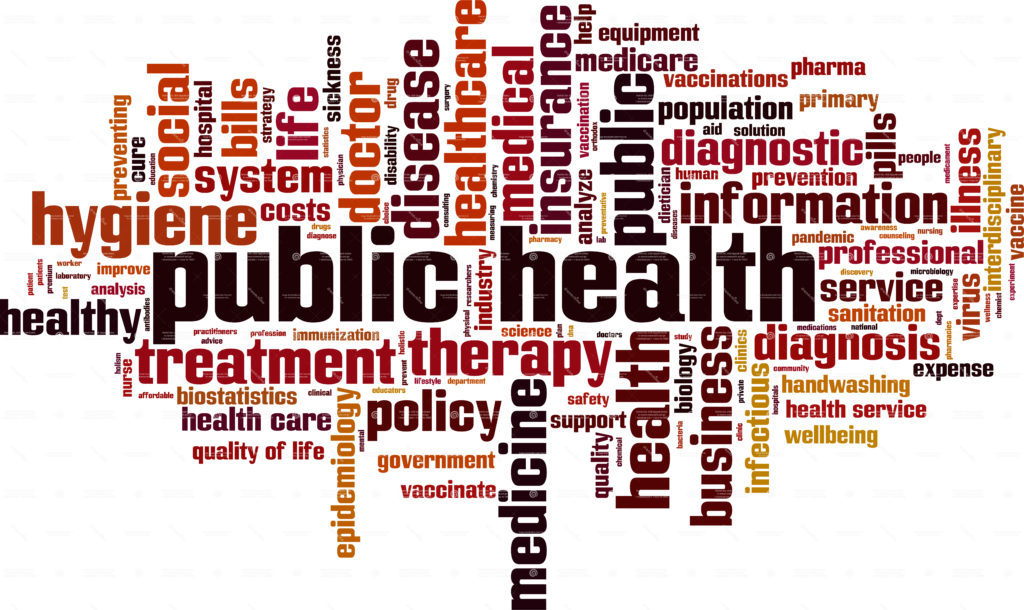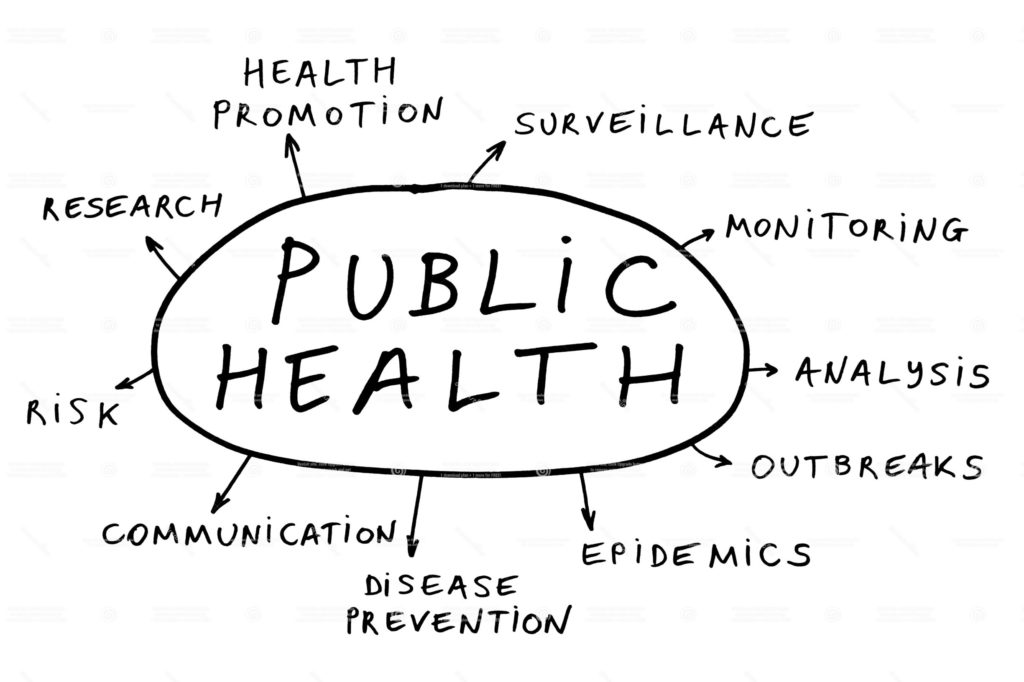What is the link between public health and business? Can businesses contribute to the population health of regions with inadequate health regulations or infrastructure? In this e-conversation, I (Sarah Stephen) posed these questions to the Editors of a Special Issue at Business & Society on “Health is Everyone’s Business: Embodying Business-Health Research”.
Read on to get deeper insights from the Special Issue Editors, Bryan W. Husted (Tecnológico de Monterrey), Fred D. Ledley (Bentley University), Ivan Montiel (City University of New York), Jill A. Brown (Bentley University), and Junghoon Park (City University of New York) on grand challenges, public health, how these motivated them to draft this Call for Papers, their hopes for this issue, and how to utilise multiple disciplines!
 Sarah: What motivated this Call?
Sarah: What motivated this Call?
Bryan: A lot of scholars turned their attention to health issues as a result of the pandemic. We were no different. However, as we studied the origins of COVID-19, it became apparent that many of its causes were tied to unsustainable business practices—a topic we have worked on for many years. So, we began to see the many connections between business and health, often through unsustainable business practices. This call represents our keen interest in exploring further these many connections.
Jill: Looking at the broad definition of CSR as the obligations of business to society, it has always mystified me that issues of public health are rarely addressed by business, unless it is part of their corporate mission or part of their industry. There is room to understand how business contributes to promoting social benefits in facing health challenges, as well as the barriers that they face in doing so. The term “public health” is also ill-defined and ranges from broad issues like sustainable water, sanitation, and hygiene to more micro, firm-level issues of employee healthcare access.
Fred: There is a striking asymmetry in scholarship concerning the role of industry in health and disease. In public health, there is an extensive body of literature on what is termed the Commercial Determinants of Health. This dynamic has been defined by Kickbusch and co-authors as “strategies and approaches used by the private sector to promote products and choices that are detrimental to health”. In contrast, business scholarship, while increasingly cognizant of corporate responsibilities to all stakeholders, has little developed theory or empirical research addressing corporate impacts on health or how public health is represented in corporate strategy or performance. This call is intended to promote a dialectic that moves beyond consideration of workplace safety and the adverse effects of tobacco, alcohol, “fast foods,” and pollutants, towards a body of theory and evidence related to the potential synergies between business practice and public health.
Sarah: Why is improving public health considered a grand challenge?
Ivan: Improving public health or, more generally, the health of humans is a grand challenge because it is a complex issue that affects segments of the population everywhere. Improving health and wellness is also one of the 17 United Nations’ Sustainable Development Goals – SDG 3 on Good Health and Well-being. The 2020s decade started with a global pandemic that affected and is still affecting the entire world population. Companies have a responsibility to improve people’s health as they rely on them as their stakeholders, not only because they are employees, but also consumers and members of the communities where they operate. Both physical and mental health issues are ubiquitous, and the private sector can, and must, contribute to palliating them.
Junghoon: Improving public health often becomes tricky because poor public health is intertwined with many other societal challenges. For instance, a particular type of cancer could be associated with behavioral risk factors, environmental hazards, climate change, social determinants of health, and commercial determinants of health. In addition, many links between some of these determinants and health conditions are suspected but not yet to be proven scientifically. Given that improving public health can be a systemic challenge, possible solutions require coordinated and collaborative efforts at multiple levels and by various actors. For these reasons, an important research question lies in understanding the conditions under which societal actors, including companies, articulate and participate in tackling public health challenges, engage in actions towards tackling public health challenges, and improve health outcomes.
Sarah: What is the link between business and public health?
Bryan: The links are diverse and go back to the commercial trade routes of Marco Polo and even further back to the times of Justinian. The most obvious links have to do with the relationship between business and consumption. The food and beverage industry, alcohol, and tobacco are all intimately related to the health of consumers. However, the pandemic opened our eyes to how globalization, deforestation, and other processes have led to an increase in newly emerging diseases. These viruses have been around for a long time, but economic growth, driven by business, has reached into the most recondite corners of the world to bring these viruses to human populations. So, we go back and look to the travel of disease around the world that has occurred for millennia.
Jill: The links are diverse, as noted by Bryan, and the tensions are equally diverse. Some public health advocates have labeled business the “vector of disease” in the association between those vice industries and consumer health. Others see business as the bridge to better/more policy with their resources, community involvement, and political/legal connections. But actual measures of social performance related to public health are elusive –so there is opportunity to better understand the link through different lenses and measures.
Fred: Commercial practices have both positive and negative effects on public health. While commercial products like tobacco, alcohol, and high calorie foods, along with the profligate use of fossil fuels and toxic chemicals, contribute substantively to the global burden of disease, industrial farming practices provide the world with a surfeit of food, and it has been estimated that pharmaceutical are responsible for half of the improvement in life expectancy and quality of life that has occurred over the past half century. There are many commercial opportunities for products that address unmet health needs or rectify past market failures as part of the core mission of industry.
Sarah: What are the key lessons that businesses have (ideally) learned from the pandemic?
Bryan: Companies have many capabilities that can be deployed to promote health—whether in terms of research and development or logistics. Companies need to learn to embrace public health tools and knowledge. The world of public health has largely been ignored by business except as it relates to health and safety regulation. Finally, business needs to support healthier communities. The pandemic interacted with pre-existing conditions such as diabetes and hypertension to create a deadly cocktail of what some termed as syndemic effects. Even if businesses think that they do not have the capabilities to improve health, they can engage in partnerships with other actors such as governments and civil society organizations. When actors with various expertise in different sectors collaborate, the likelihood of addressing the human health grand challenges effectively will increase.
Sarah: What is “health-washing,” and how can businesses resist engaging in such symbolic actions?
Jill: Health-washing is similar to greenwashing—it is a term used in conjunction with false and/or unsubstantiated public health claims by companies so as to present a socially responsible public image. With greenwashing, it is about environmental claims. Here, it is about companies claiming to be concerned with public health issues.
Ivan: Even if unclear whether the term health-washing is needed or the most widely accepted term of greenwashing can also be applied to false health claims, there is evidence that business have misled or made false claims about particular attributes of their products and services. Such irresponsible behavior may impose health risks on consumers and therefore need to be exposed.
 Sarah: Is it possible for businesses to contribute to the population health of regions with inadequate health regulations or infrastructure?
Sarah: Is it possible for businesses to contribute to the population health of regions with inadequate health regulations or infrastructure?
Bryan: Definitely! The classic case of Merck developing a cure for river blindness is a clear example to illustrate what is possible. However, such examples are far and few between where a business case does not exist. We need to explore the conditions under which business can contribute to health and when it will not help.
Fred: A substantial fraction of the global burden of disease is associated with inadequate access to clean water, appropriate nutrition, vaccines, medicines, and health services. These deficiencies can be contextualized as opportunities for innovative products and services that correct past market failures or create new markets as well as advocacy for policies that empower entrepreneurs and established corporations to address unmet needs in a responsible manner.
Sarah: What are your hopes for this Special Issue – for theory and practice?
All: First, we hope that the special issue will open the eyes of business scholars to an area of study that has largely been neglected. Research is sorely needed. Second, we hope that businesspeople and scholars will look to the many tools that have been developed in public health that can enable companies to improve their impacts on health. The health impact assessment is one such tool. Finally, we hope that this special issue will detonate collaboration between business and public health scholars. Public health researchers have looked askance at business scholarship, and we hope that the special begins to open areas of collaboration.
Sarah: How would you envisage scholars utilizing multiple disciplines when responding to this Call?
Bryan and Jill: We hope that minimally scholars from both business and public health will begin to read each other’s research. The canons of good research in business and public health differ somewhat, so we all need to become bilingual in a sense to learn to speak the language of the other. Hopefully, this “cross-cultural” communication will enrich the different disciplines that can help us to solve the knotty problems related to health. We strongly believe that business and public health scholars have complementary research skills that can be combined to execute more effective studies with real impact on society. We also think that a journal such as Business & Society is one of the fittest journals to publish this type of interdisciplinary work. At the end of the day, Business & Society’s mission is about conducting rigorous research on the intersections between business and society, including the health of the human species.
Fred: there is profound lack of trust between the public health and business communities based on a long history of corporate indifference to public health, concern about regulatory capture, and unresolved issues related to drug pricing, corporate profits, and misinformation campaigns linked to commercial products. There are also deep differences in the foundational theories and research methodologies of public health and business. We hope this solicitation encourages scholars to take the risk of working across these divides to develop new theory and evidence that unleashes the power of business as a force for good that can be applied to reduce the global burden of disease and improve public health.
Sarah: Any pointers for interested authors who might have good ideas on contributing to this Call?
All: First of all, if authors have any doubts about the fit of their paper, it would be a good idea to run it by the special issue editors. We have scholars from both business and public health, and we hope that research from both fields can find a place. Second, authors need to remember that this journal is Business & Society. So, papers need to have a clear connection to the business firm as well as to health. Finally, as with all papers published in Business & Society, the paper should offer some theoretical contribution—whether in the public or health or general business/society arenas.
